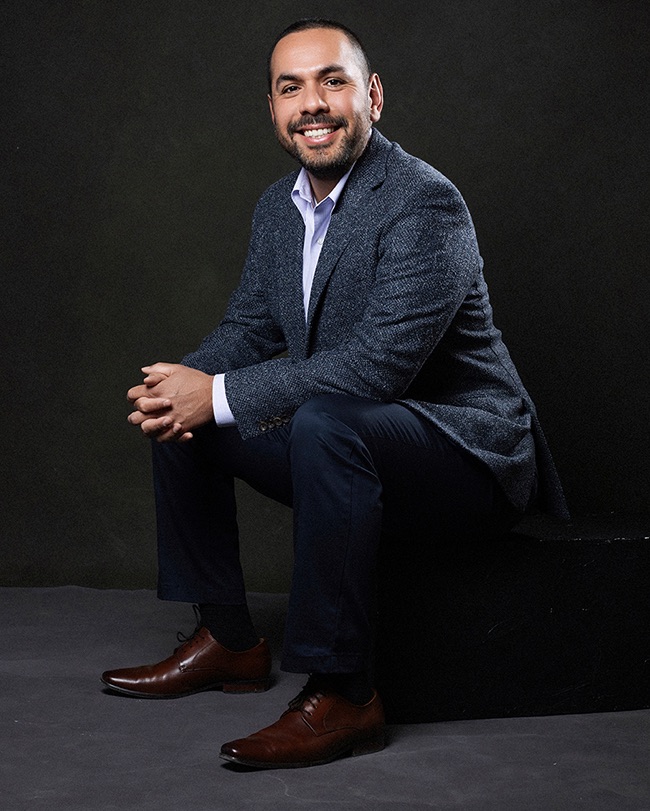Doing the right thing

Born and raised in Peru, Juan Francisco Chavez R. traces his career path back to his grandparents. Both sets were born in small towns and moved around in search of better opportunities. Eventually, they landed in the bustling capital city of Lima.
“I see my grandparents as adventurous and courageous . . . trying to build a better future for the next generations,” says Chavez. His parents were among the first in their family to earn university degrees. Chavez, meanwhile, has earned three degrees in three countries: a bachelor of science in social studies in Peru; a master of arts in development studies in the Netherlands, and a PhD in international management and organization in B.C. Last fall, he joined Smith as an assistant professor of strategy and organizations, moving from Victoria to Kingston with his wife and young son.
“If it wasn’t for my grandparents making those decisions,” he says looking back, “I wouldn’t have had the opportunities that I had. I’m here because of them, and that is always present in the work that I do.”
His father, a university professor in Peru, is another inspiration. “He’s a natural scientist. His work was always about how to support local farmers and local communities in their economic development projects,” says Chavez. As a youngster, “I was always travelling with him for fieldwork and looking at his research. So, his work has really influenced the path that I have taken.”
Earlier in his career, Chavez consulted for multinationals and governments on how they can “be active players in local development processes.” That became the focus of his master’s studies.
“We often talk about how the role of business is to create value, but sometimes in creating one form of value — like creating jobs or increasing revenue — we may start destroying other forms of value, like undermining ecological systems or damaging the culture of the local population,” Chavez explains. “So, being active players in development processes is about how businesses can create value that doesn’t destroy value for other stakeholders.”
These days, Chavez brings those ideas to life in the classroom. His colleague, Jean-Baptiste Litrico, associate professor and former director of the Centre for Social Impact at Smith, came up with the idea for a new course, Business for Good — An Introduction to Impact-Driven Leadership. Chavez helped develop the curriculum and teaches the course, which encourages students to understand the changing role of business in society. It’s not all about maximizing profits, says Chavez, but also finding ways businesses can address social and environmental issues and make a positive impact.
“There is a business case for being a good corporation. A lot of work has shown there is a relationship between having good sustainability standards and [outcomes like] increasing your customer base, increasing customer loyalty, attracting and retaining talent and mitigating or reducing operational, financial and legal risks,” Chavez says. “But to me, one of the main reasons is not because the business case is going to make [an organization] more money, but because this is the right thing to do.”
That philosophy is reminiscent of advice his father gave him early in his studies. “He said, ‘Whatever you do, just try to do the right thing. Try to support people, try to have an impact and try to do the best you can,’ ” Chavez says. “And that’s what I carry with me.”
